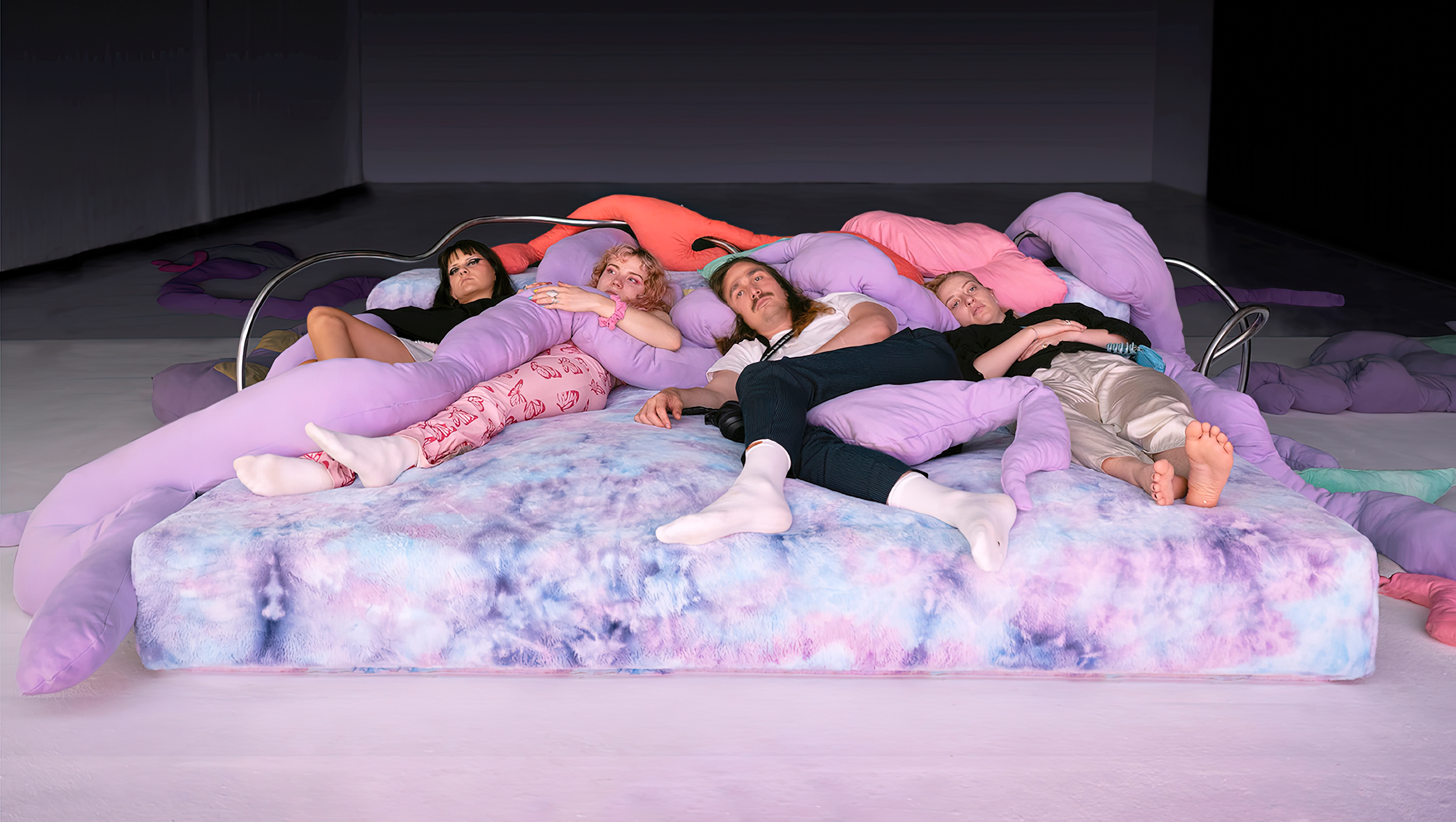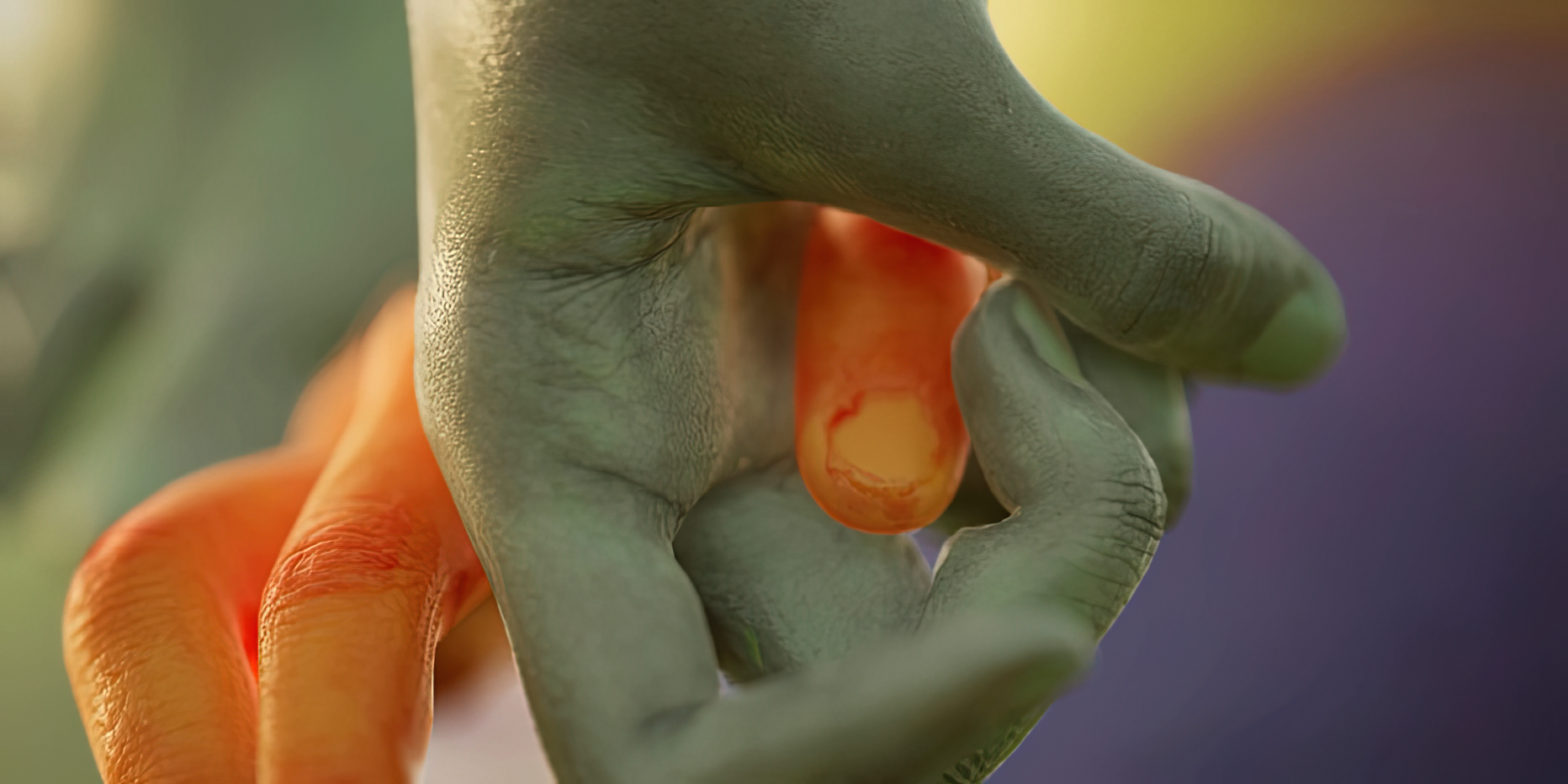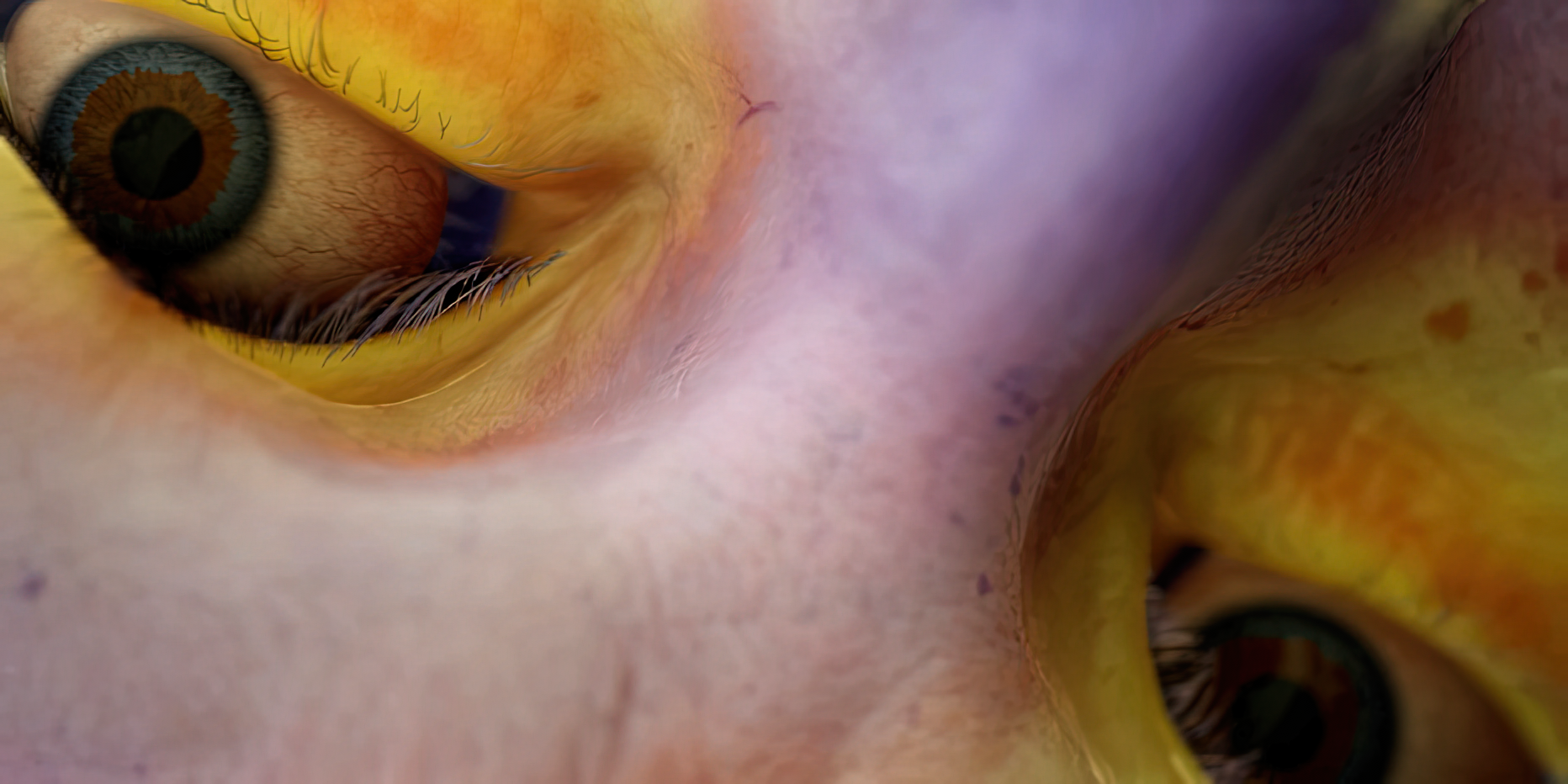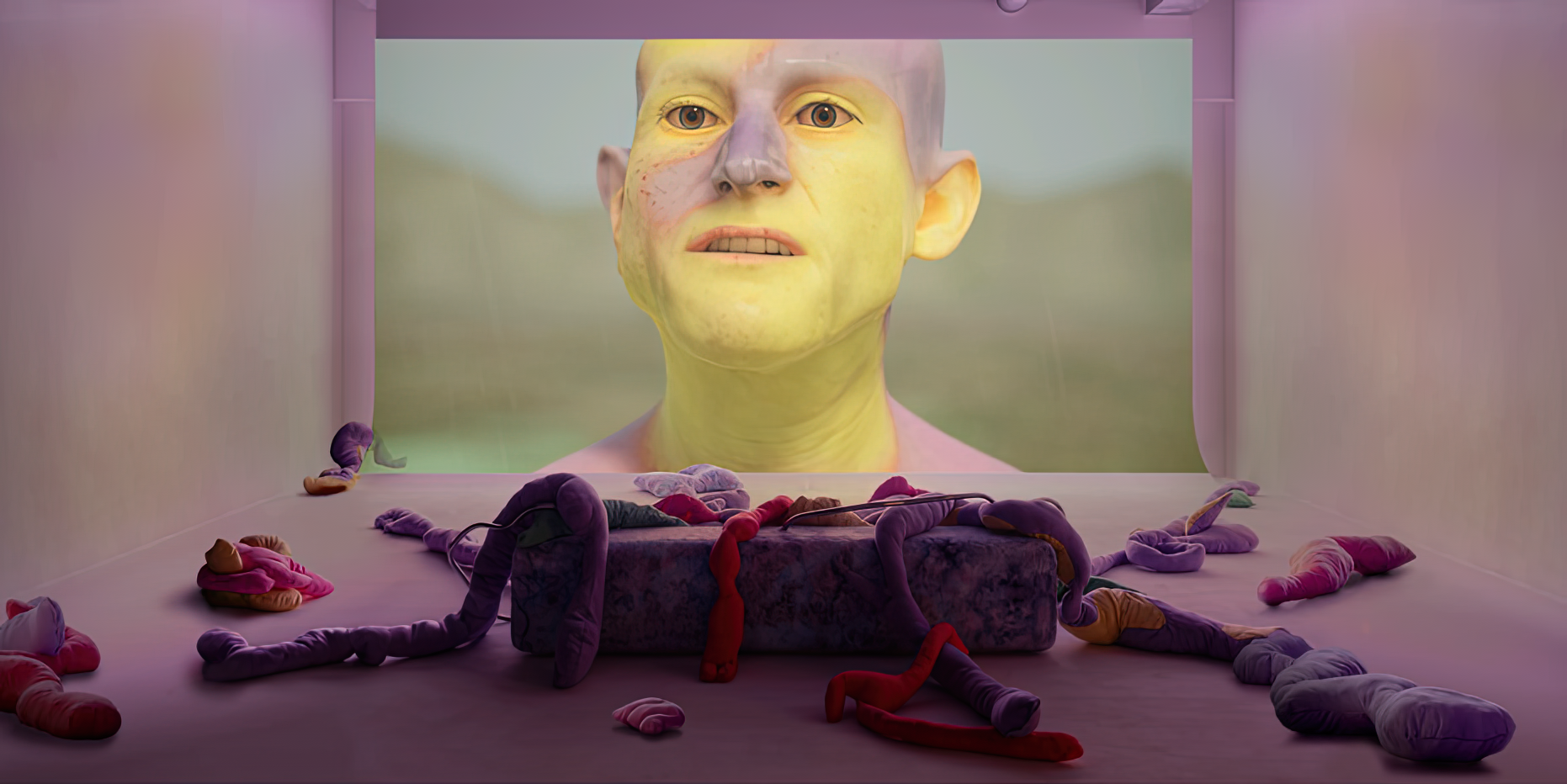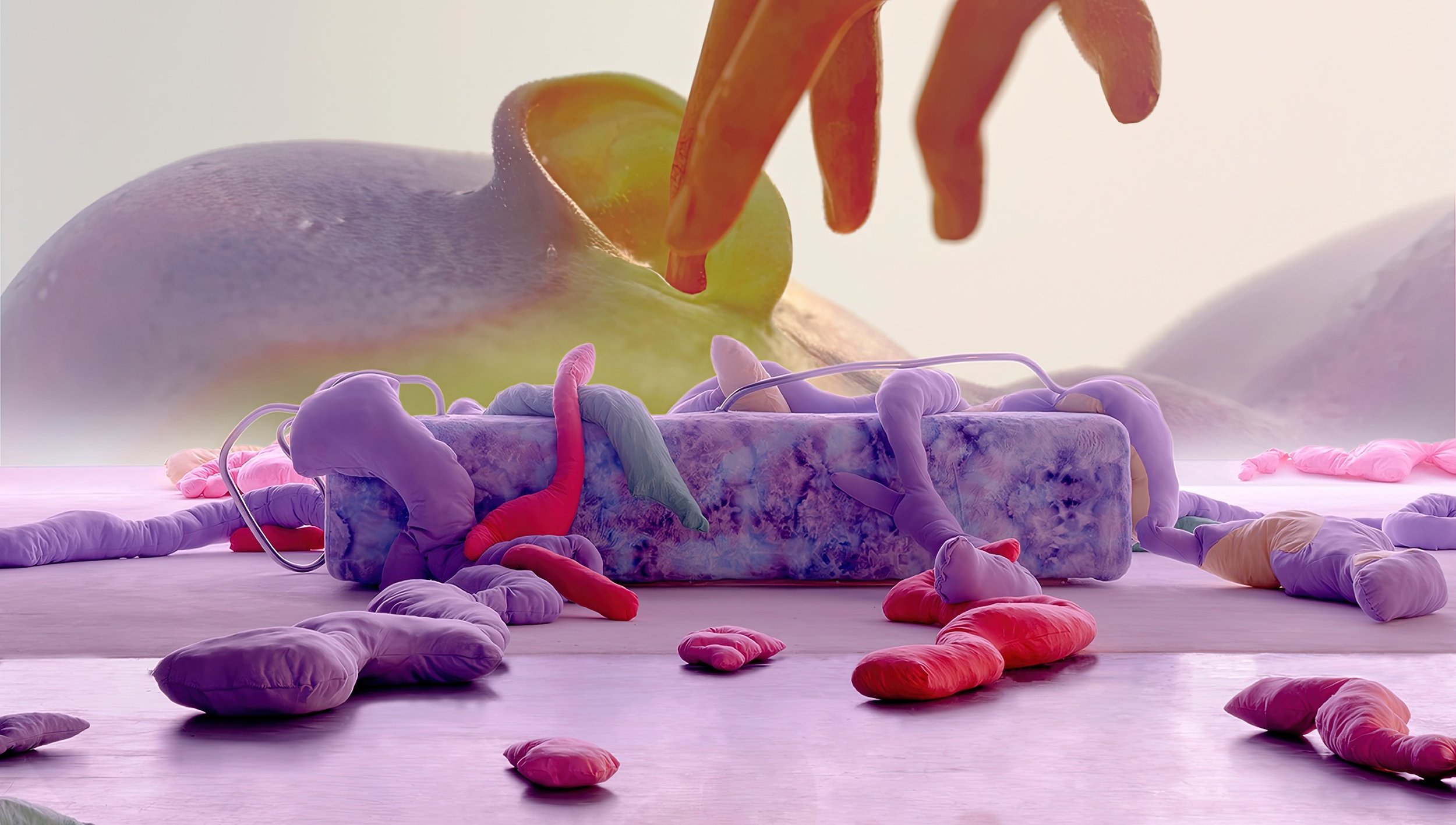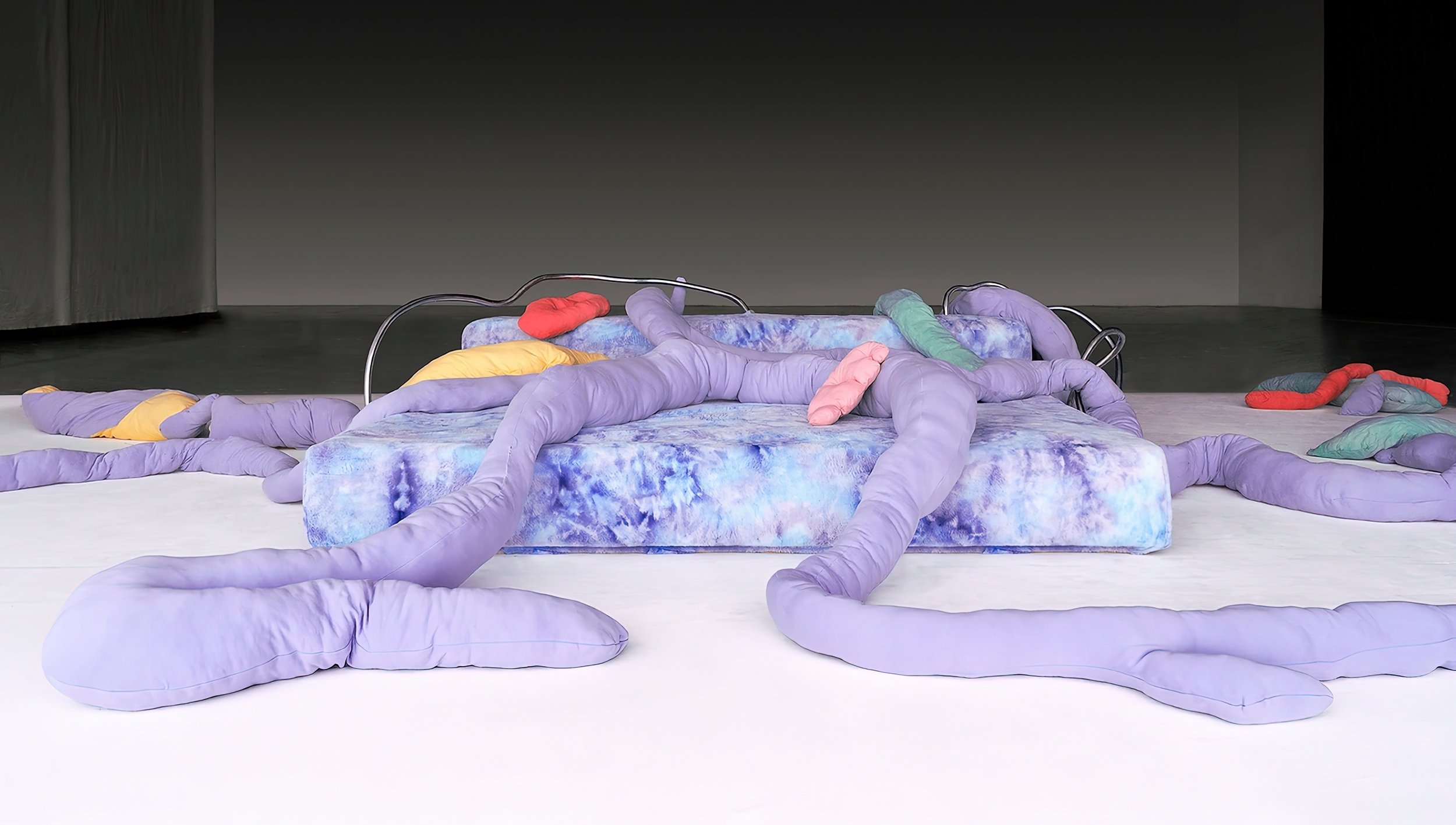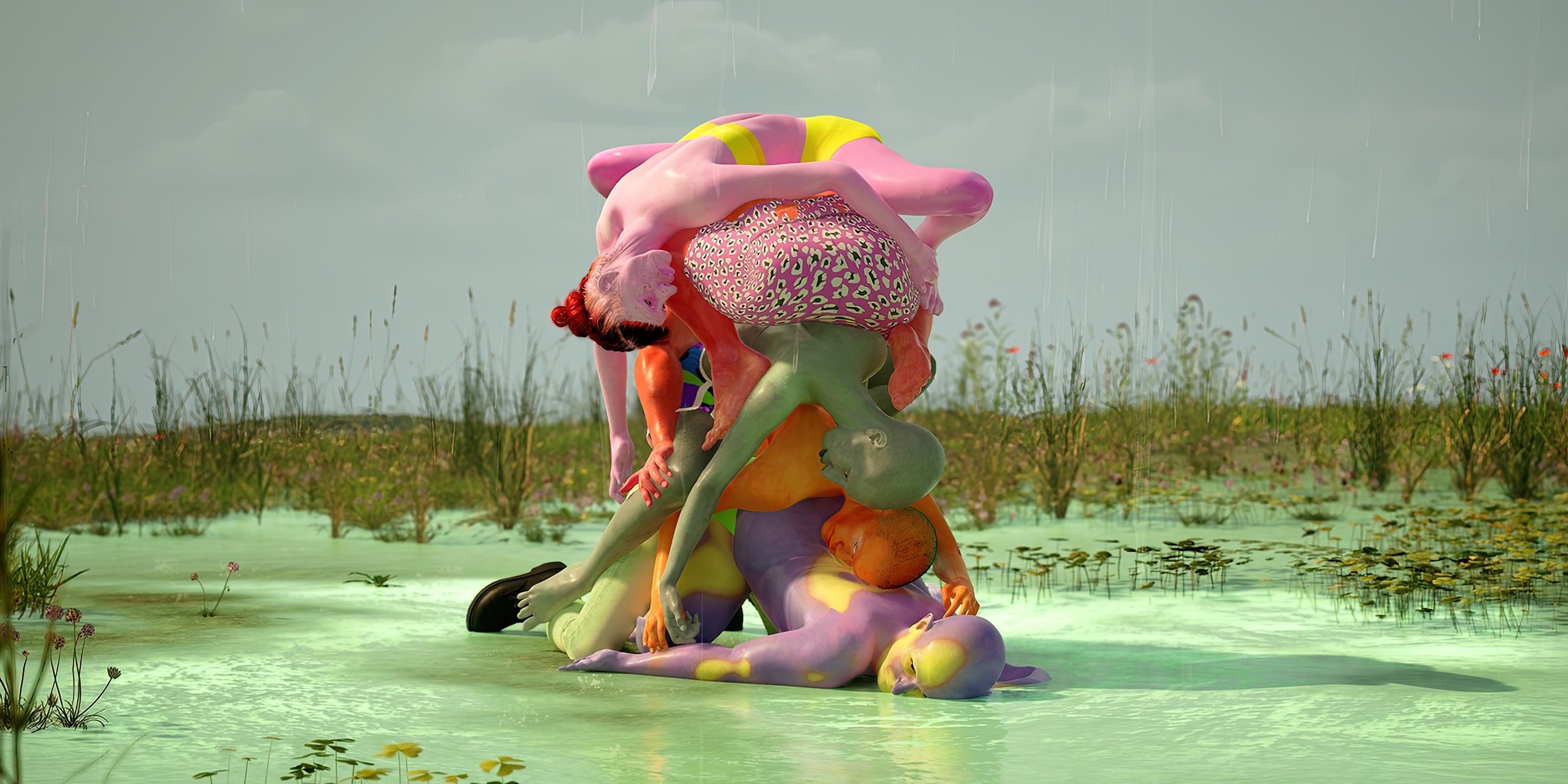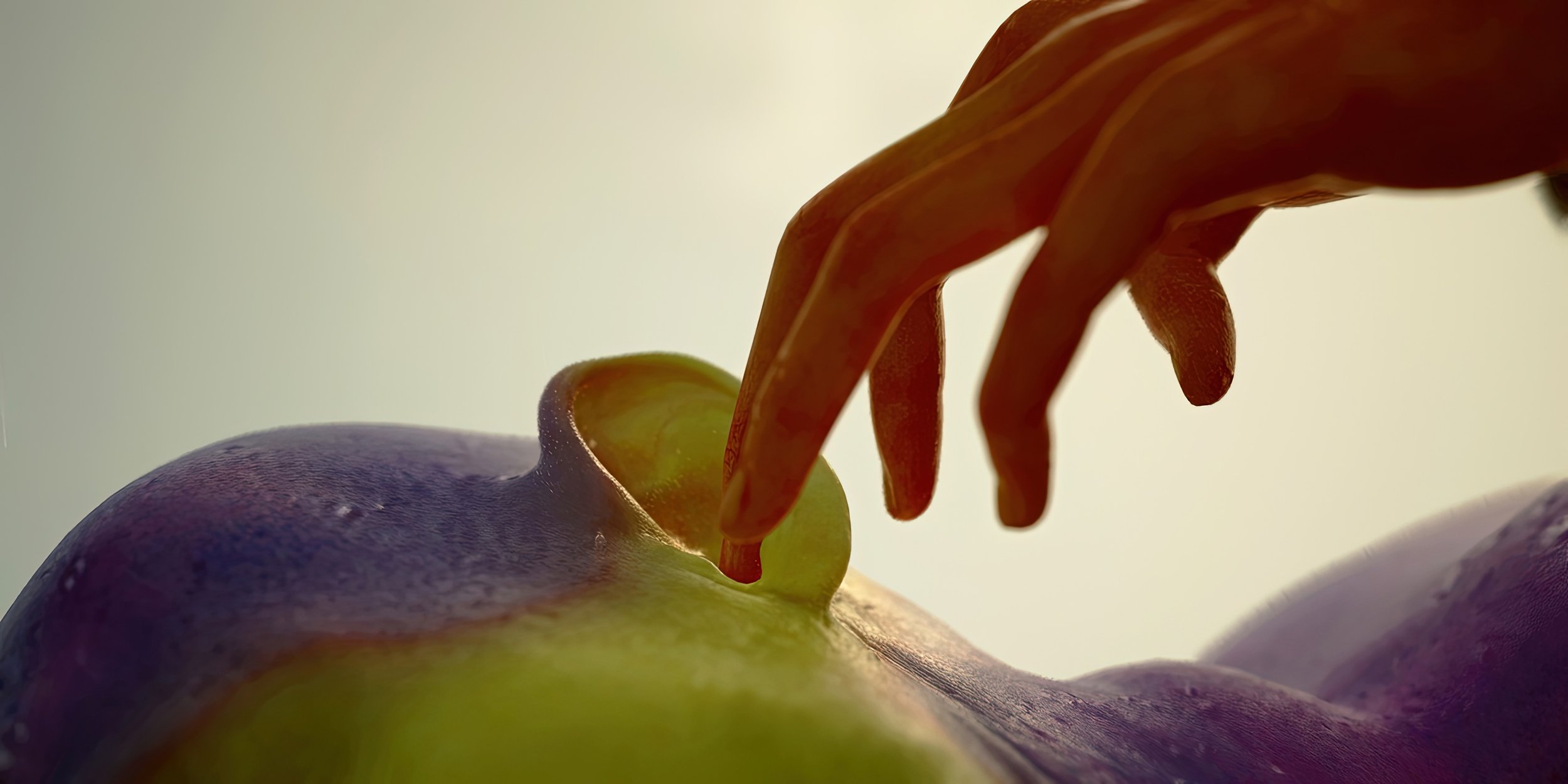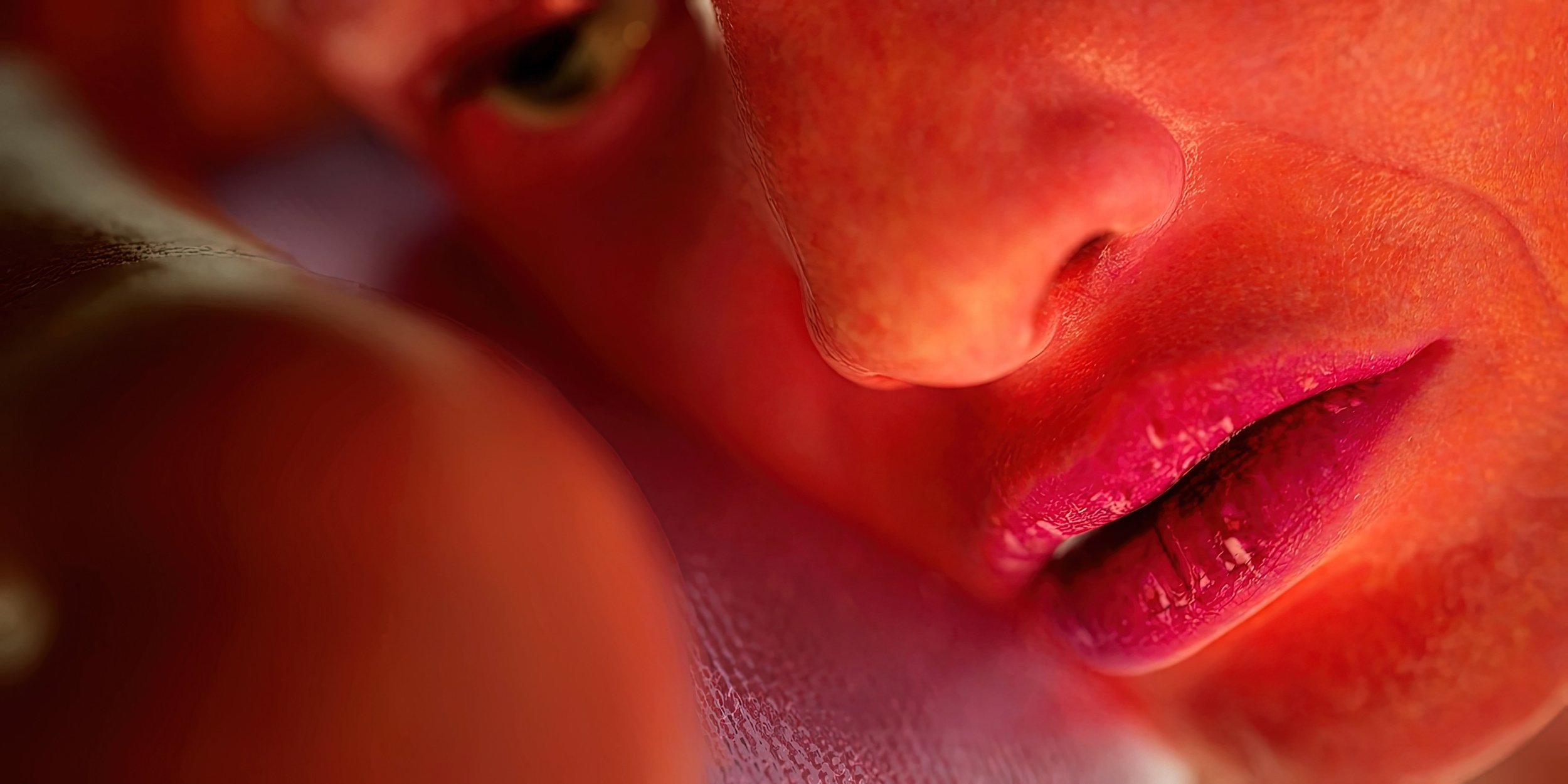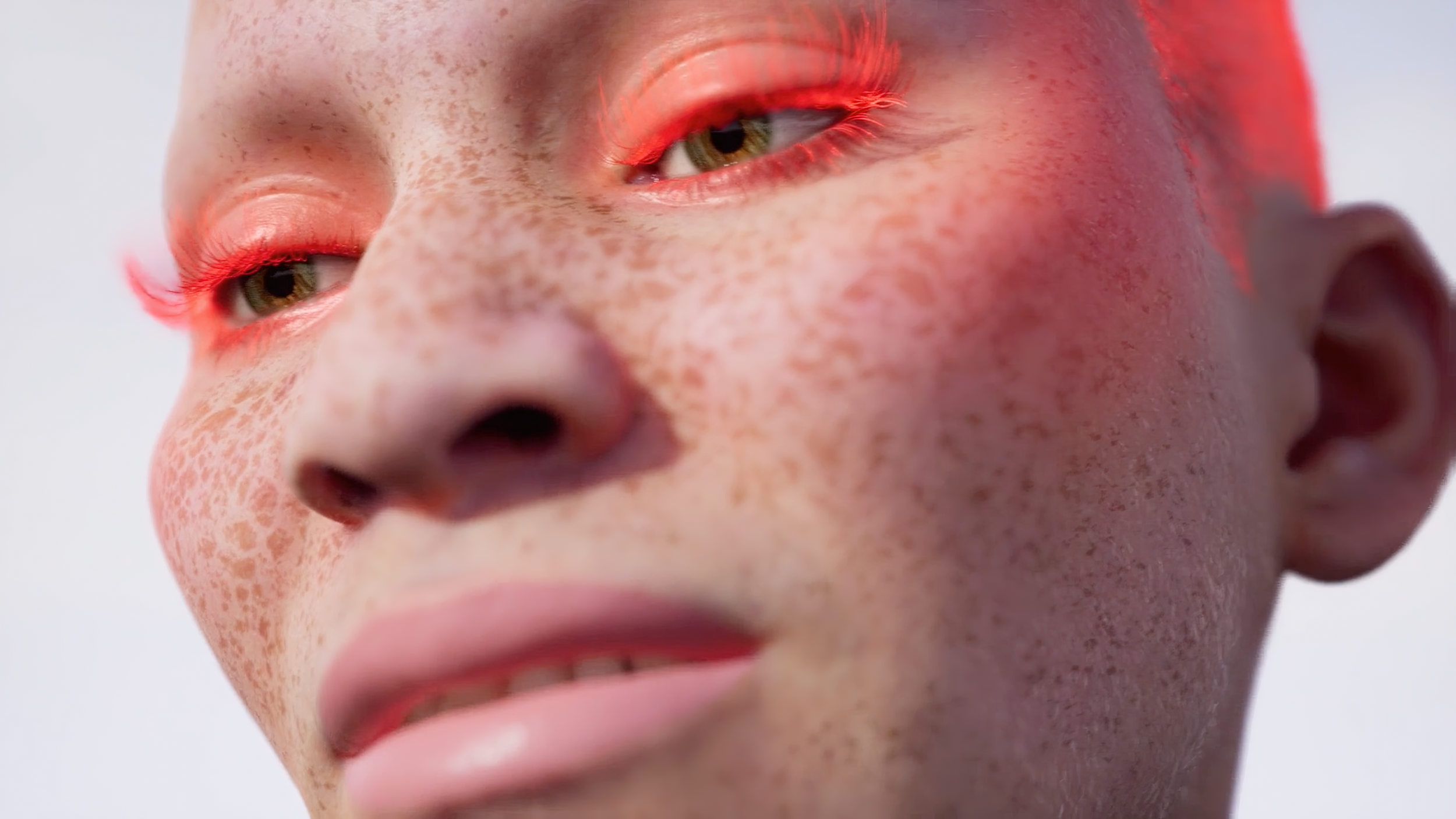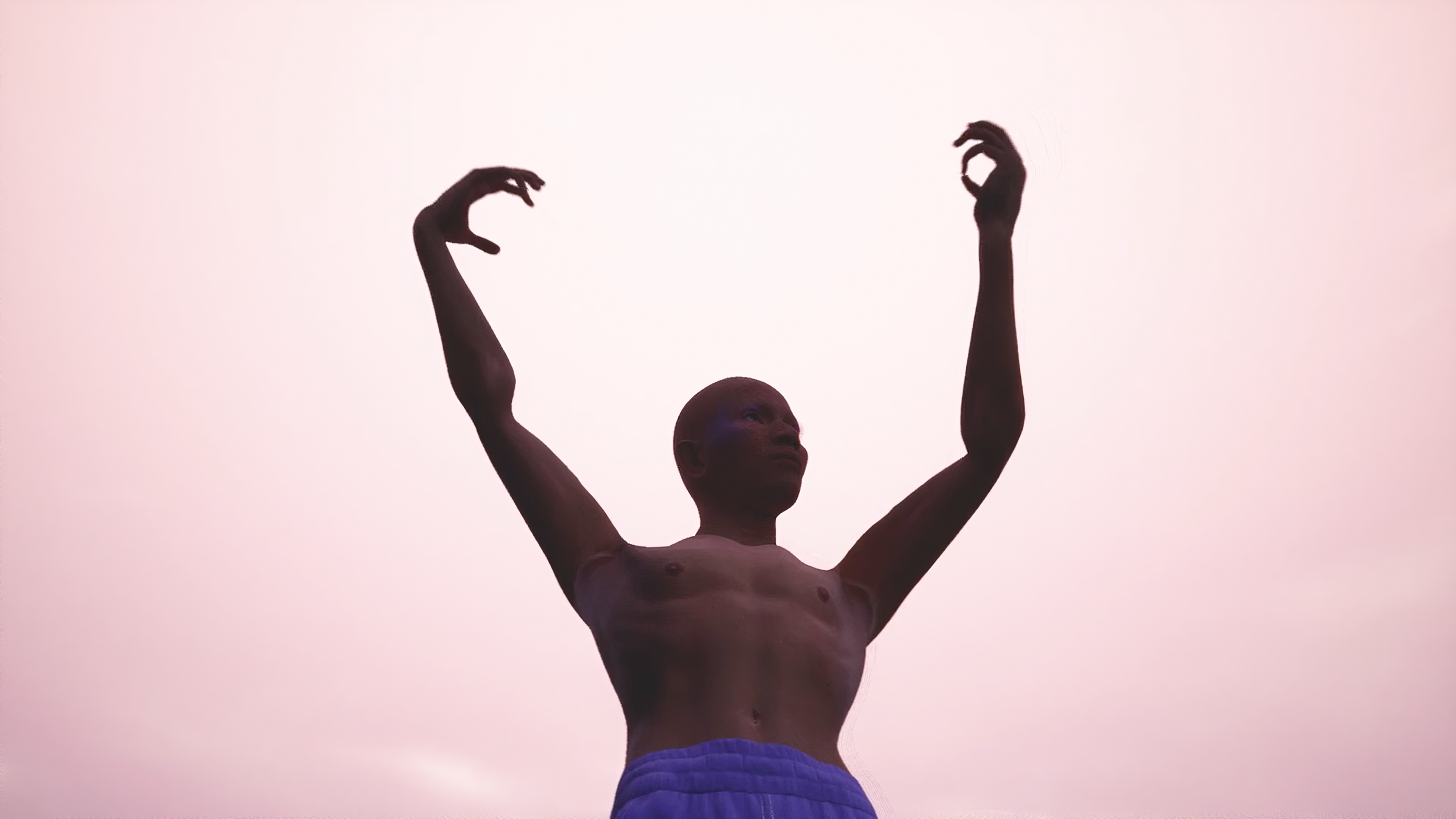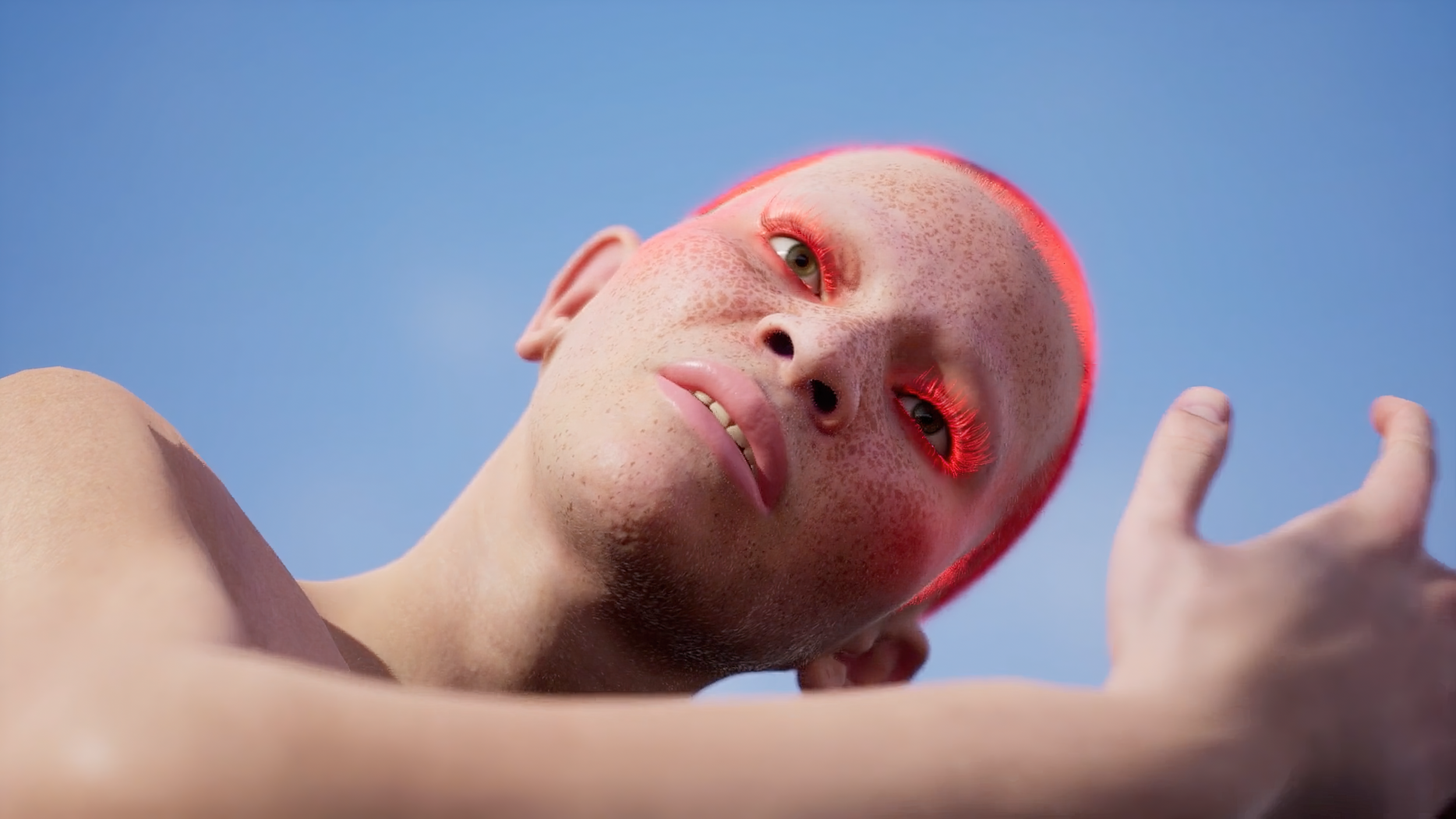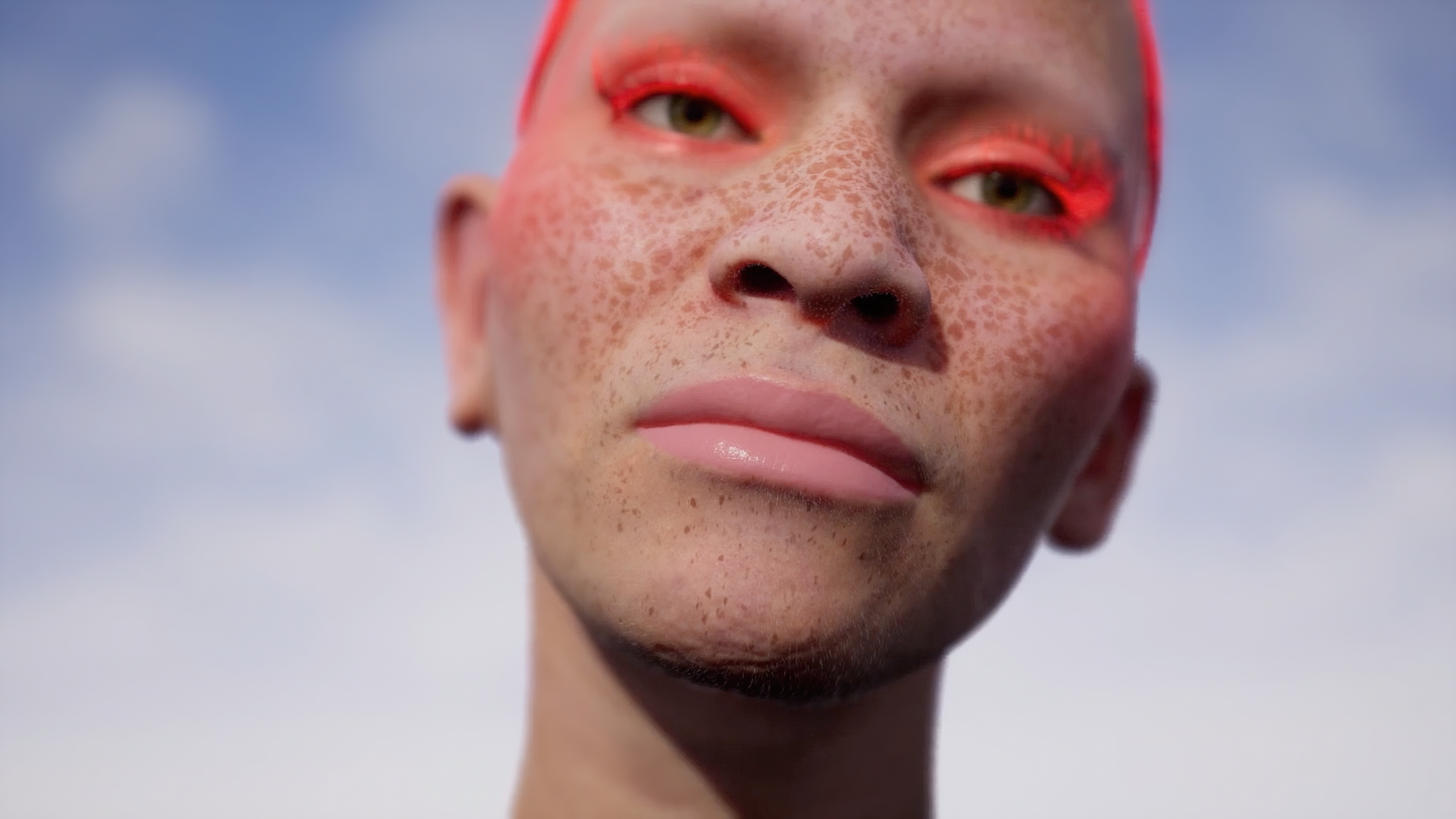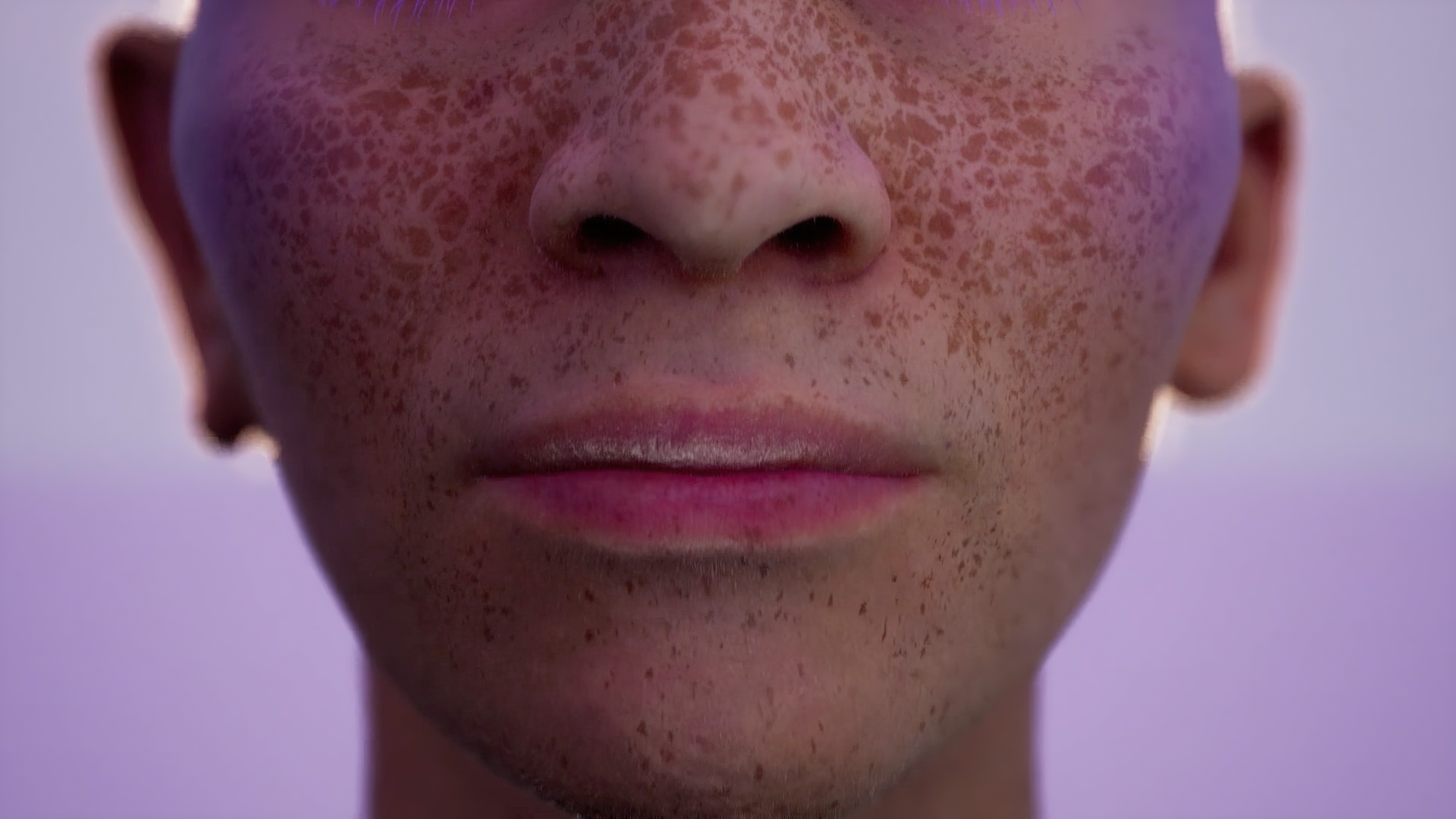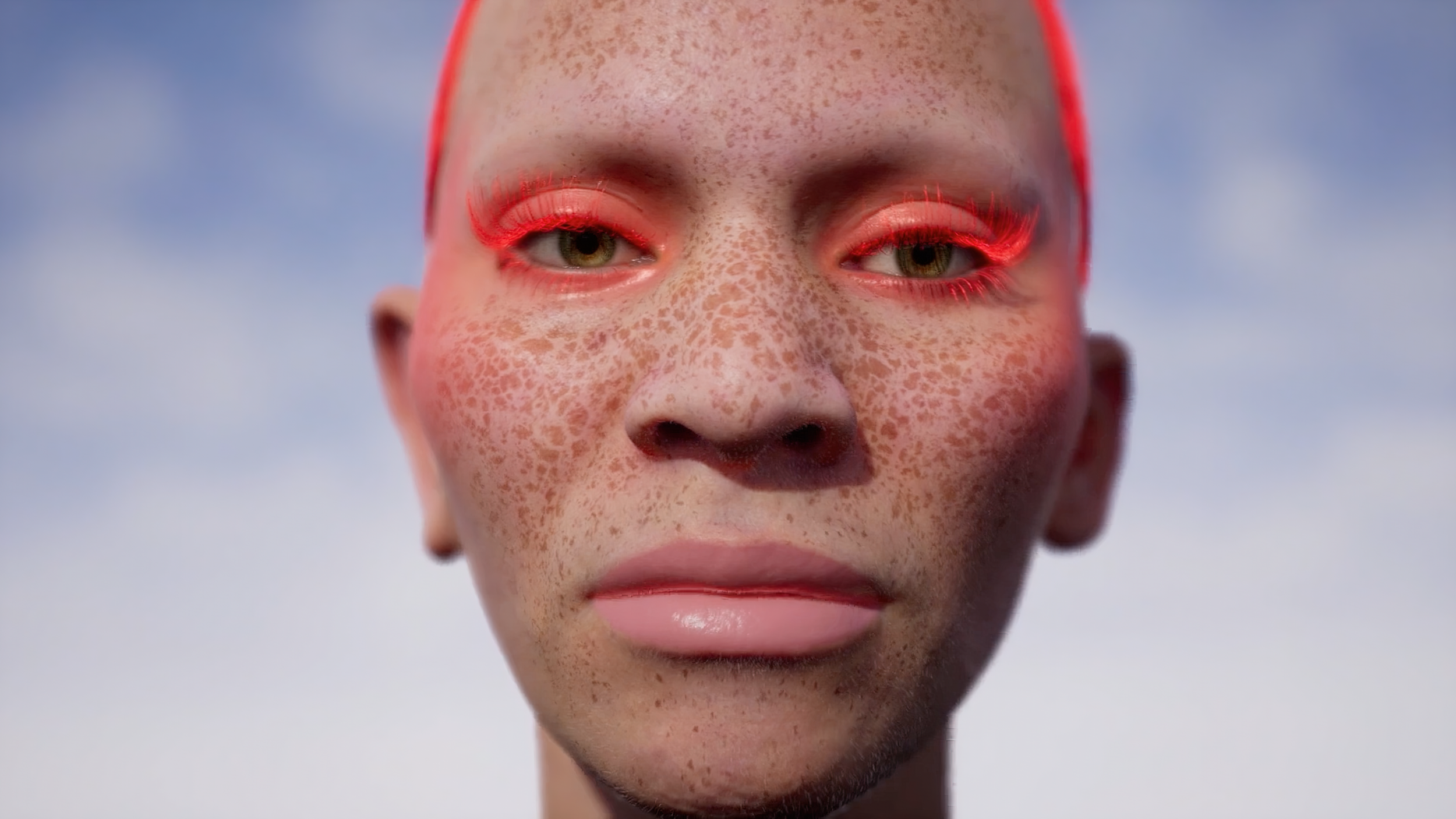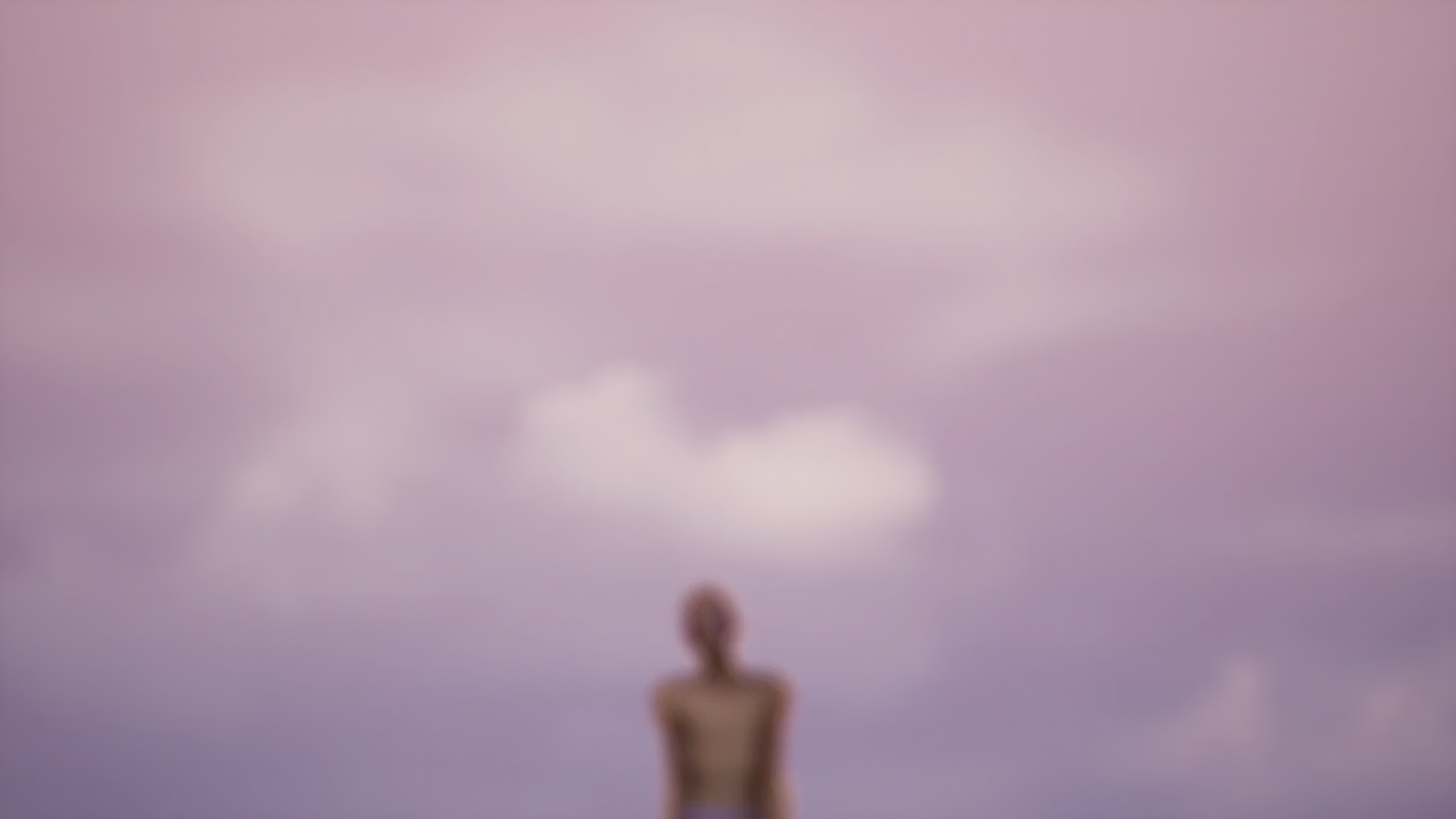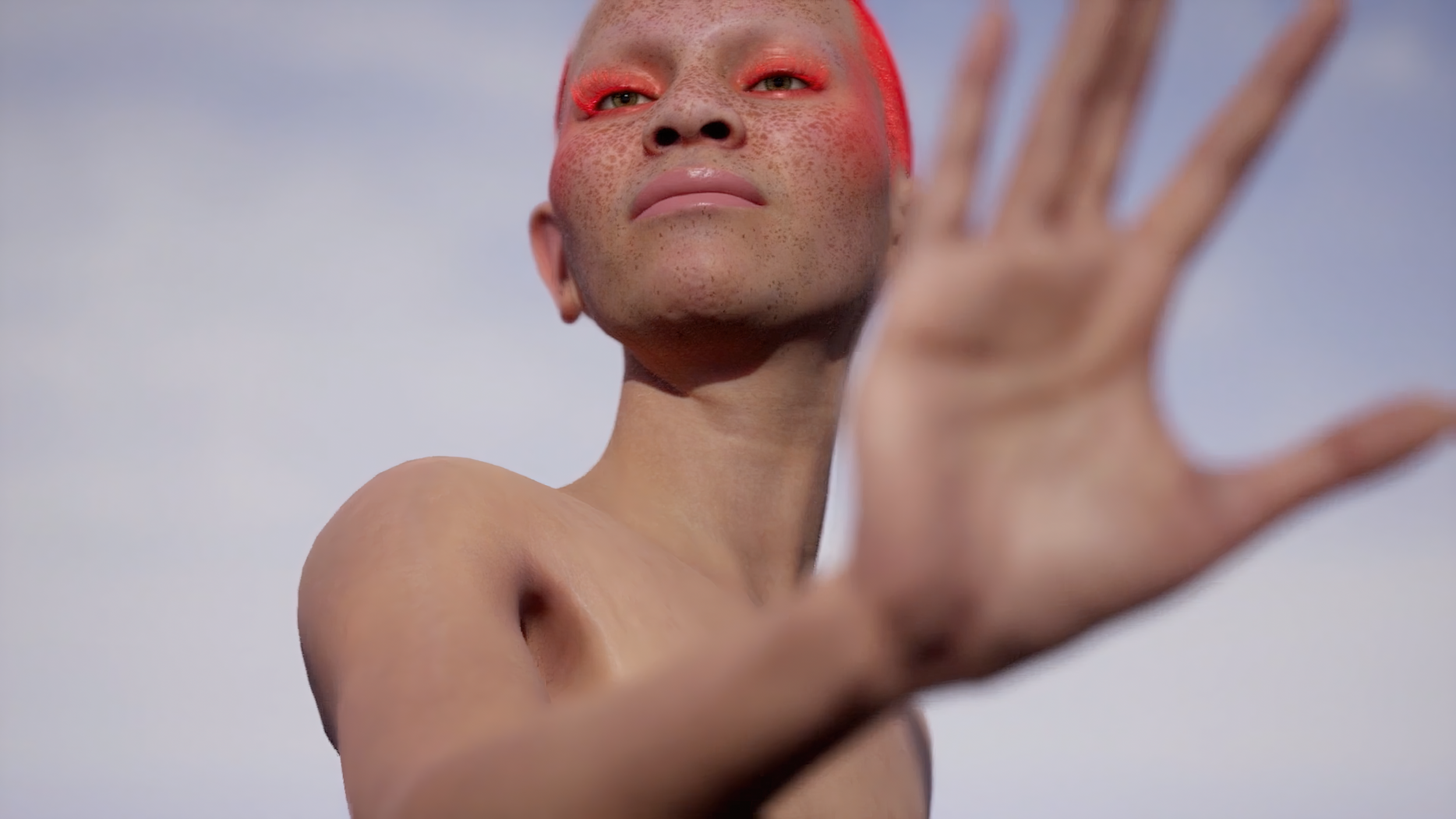The CG video installation Wetlands of Pharmacology by artist Moritz Jekat, whose groundbreaking machinima, The blue seals. Extinct and happy (2023) premiered in Season 4 of VRAL, explores themes of co-existence, care, and healing through an immersive virtual environment. The 17-minute digital video was created entirely within the Unreal game engine and features a group of humanoid alien characters who come together in an intimate setting to exchange emotional and physical knowledge.
Jekat was inspired by the writings of several theorists, including Donna Haraway, to experiment with empathy, emotional sharing, identity, and hospitality in the junction between physical and virtual worlds. In contrast to the high-speed consumption of virtual spaces, Wetlands of Pharmacology intentionally adopts a slow, caring pace as the characters share dreams, thoughts, and emotions. Jekat cleverly appropriates video game technology and aesthetics to reimagine care as a central theme, defying the combat and violence prevalent in most commercial videogames.
Facing a world in realignment, surrounded by the high speed, consumption oriented environment in physical and virtual life created a longing for healing, reconnecting and re-kin-ing, love, forgiveness and politics and alternative perspectives on what surrounds us and how we can coexist in this in between. In Wetlands of Pharmacology a group of humanoid alien-avatars retreated to a virtual space inside a computer game engine. A coming together in a caring pile of exchanging thoughts, emotions and dreams, brought together by subconscious writing and tools of the wetlands. A waterbed in the physical space functions as a connector. The pharmacon, defined as both cure and poison, refers here to the technical objects, biological or non-bodily organs and social relations through which we open ourselves to new futures and thereby create the spirit that makes us human.
The artist collaborated with other artists, i.e., Andrea Bocca, Antoine Simeao Schalk, Valentina Parati, Yuna-Lee Pfau, to collectively develop the script performed by the CG characters. Jekat used motion capture to “wear” the customized avatar bodies and give an intimate, first-person perspective to the viewer. The pharmacon concept, meaning both cure and poison, is embodied through the virtual environment acting as both a space of connection and potential isolation.
The accompanying physical installation thoughtfully extends the themes into the gallery space. The waterbed sculpture invites intimate gatherings, while the mycelium-inspired soft sculptures reference the interconnectivity of networks. Overall, the project offers a poignant commentary on how technology and virtual spaces may provide opportunities for empathy and care rather than just consumption and isolation. The hybrid virtual/physical installation rewards deep observation and critical reflection from the viewer.
Wetlands of Pharmacology represents an experimental, collaborative approach to using virtual environments and video game technology as spaces for emotional connection and healing. The project succeeds through its conceptual depth, attention to intimacy and care, and its seamless integration between the virtual characters and the physical installation.
Matteo Bittanti
Read more about the 2023 show at ECAL here
Works cited
Moritz Jekat
Wetlands of Pharmacology
Digital video (2000 x 1000), color, sound, 17’ 44”, 2023, Germany
The collective script was developed with: Andrea Bocca, Antoine Simeao Schalk, Valentina Parati, Yuna-Lee Pfau.
Sound Design: Bindiram Noah Gokul
Sound Mastering: Tamara Meli
Waterbed and soft sculptures
in collaboration with
Felice Berny-Tarente and Marine Col
Read an interview with Moritz Jekat
All images and video trailer courtesy of the Artist(s)


